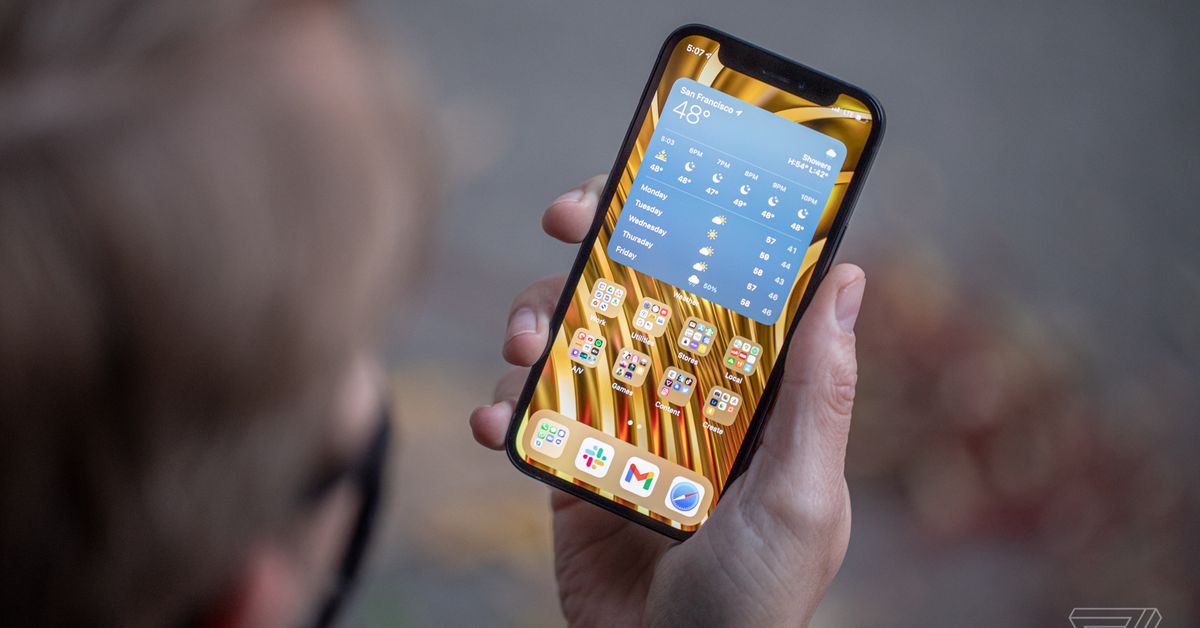Fakespot, identified for its internet browser extensions that attempt to weed out pretend product critiques, immediately now not has an iPhone or iPad app — as a result of Amazon despatched Apple a takedown request, each Amazon and Fakespot affirm, and Apple determined to take away the app.
The large retailer says it was involved about how a brand new replace to the Fakespot app was “wrapping” its web site with out permission, and the way that might be theoretically exploited to steal Amazon buyer information. Fakespot founder Saoud Khalifah advised The Verge that Apple abruptly eliminated the app in the present day with none rationalization. Apple confirms it eliminated the app, however disputes the circumstances.
The brand new Fakespot app launched simply over a month in the past, and I can affirm it allow you to log in to Amazon, browse, and purchase objects with Fakespot’s overlay on high. I downloaded and tried it a couple of weeks in the past to see if it might assist spot pretend critiques on some new purchases, however I didn’t come to a conclusion on whether or not it really helped.
Thanks to all of our customers for making this new iOS app a actuality. Collectively we’ll put an finish to eCommerce fraud. We have now extra superb merchandise coming quickly that may make safe purchasing the gold commonplace for eCommerce. https://t.co/UyUnsOydzK
— Fakespot (@FakespotTweets) June 21, 2021
However in mid-June, says Fakespot’s founder, Amazon initiated a takedown discover. And simply hours in the past, says Khalifah, Apple lastly delivered a blunt three-line e mail about the way it regretted that the state of affairs couldn’t be resolved amicably and that Fakespot has now been faraway from the App Retailer. “We simply devoted months of assets and money and time into this app,” says Khalifah. “Apple hasn’t even given us the flexibility to unravel this.”
Hours after we printed this story, Apple advised The Verge that’s not precisely true:
“This was a dispute over mental property rights initiated by Amazon on June 8 and inside hours we ensured each events had been involved with each other, explaining the difficulty and steps for the developer to take to maintain their app on the shop and giving them ample time to resolve the difficulty. On June 29, we once more reached out to Fakespot weeks earlier than eradicating their app from the App Retailer.”
Over the cellphone, Khalifah clarified that Apple did point out on June twenty ninth that it “could also be pressured to drag” Fakespot from the App Retailer, however insists Apple by no means offered another steerage, and that it was largely simply dialog between Amazon and Fakespot the place every argued their aspect earlier than Apple yanked the app. “I’m shocked Apple determined to aspect with Amazon with none proof,” says Khalifah.
Amazon tells us it believes Fakespot violated Apple guideline 5.2.2, which reads:
5.2.2 Third-Celebration Websites/Providers: In case your app makes use of, accesses, monetizes entry to, or shows content material from a third-party service, guarantee that you’re particularly permitted to take action beneath the service’s phrases of use. Authorization have to be offered upon request.
Amazon additionally tells us that Fakespot injects code into its web site, opening up an assault vector and placing buyer information (together with e mail, addresses, bank card information, and your browser historical past) in danger, although it says it doesn’t really know if Fakespot is utilizing this info.
“The app in query offers clients with deceptive details about our sellers and their merchandise, harms our sellers’ companies, and creates potential safety dangers. We respect Apple’s evaluation of this app towards its Appstore tips,” reads a press release from Amazon.
However whereas Fakespot admits the app injects code to show its personal scores, he categorically denies there’s any vulnerability and factors out that apps which embody an internet browser view are widespread — together with coupon apps that Amazon appears to “don’t have any downside with wrapping round a webview browser.” Amazon did, nonetheless, attempt to warn towards browser coupon extension Honey by suggesting it was a safety danger final January.
No matter why, it’s a blow to one of many main outspoken critics of Amazon’s evaluation system, as Fakespot is usually cited in experiences about evaluation fraud on Amazon. Amazon even purchased search adverts towards the “Fakespot” key phrase within the App Retailer to scale back the app’s potential impression:
“Amazon is keen to bully little firms like ours that showcase the cracks of their firm,” Khalifah says, suggesting Amazon should have realized individuals had been selecting their app over the Amazon app. He says Fakespot racked up 150,000 installs from the iOS App Retailer, with out spending any cash on advertising.
Amazon says it usually audits firms that attempt to name out pretend critiques and claims that Fakespot’s scores are largely improper: “We usually evaluation merchandise the place Fakespot rated a product’s critiques as untrustworthy and their findings had been improper greater than 80% of the time. They merely shouldn’t have the knowledge we’ve—equivalent to reviewer, vendor and product historical past—to precisely decide the authenticity of a evaluation.” Amazon means that it does a significantly better job of discovering pretend critiques itself by analyzing 30 million of them every week, although that clearly hasn’t stopped the pretend and incentivized evaluation issues but — one thing we’re nonetheless investigating at The Verge.
Amazon wouldn’t say if it’s contacted Google in regards to the Android model of the app, however that app hasn’t been up to date since 2019.
Fakespot’s founder says the corporate is weighing its authorized choices now as a result of it believes cell is the way forward for purchasing. “We’re seeing percentages of 60/40 now hovering in cell’s favor,” Khalifah tells me.
“We’ll discover all of the choices we’ve out there,” says Khalifah.
Replace, 8:09PM ET: Added point out of browser coupon extension Honey.
Replace, 10:39PM ET: Added Apple assertion and Fakespot’s reply.




